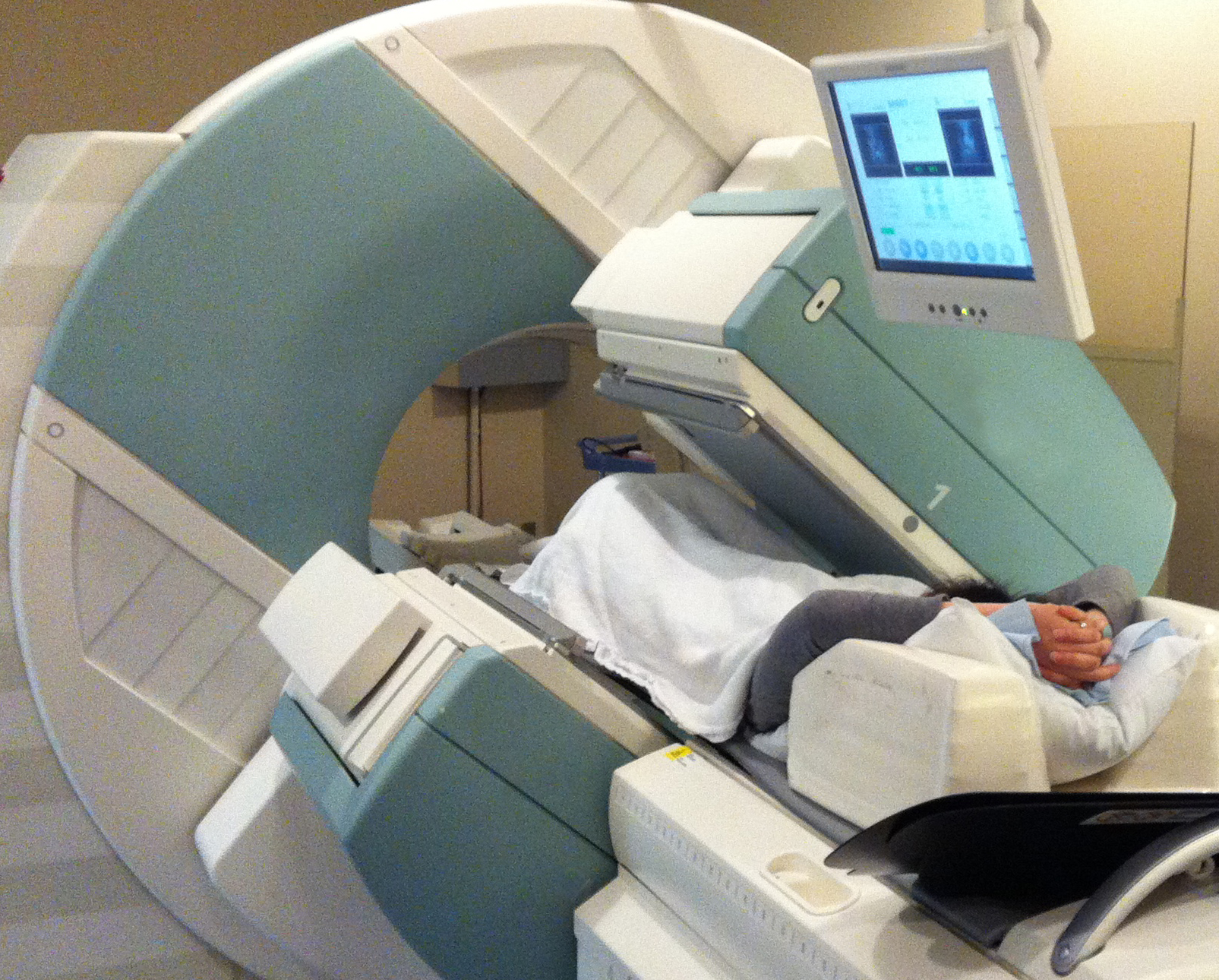Why Nuclear Imaging?
Unlike other radiologic diagnostic tests, the nuclear image focuses less on how an organ looks, and more on how the organ functions. By capturing the processes of a functioning heart of other organ through the use of the radioactive material (called a tracer), a physician can often make a more accurate diagnosis and plan for present and future treatments. The information provided using nuclear imaging is usually unattainable with any other type of imaging procedure. For many diseases and conditions, the results yield the most useful information available to make a diagnosis or determine an appropriate treatment plan.
Nuclear imaging can be used for a variety of different reasons, including:
- Analyzing kidney functions
- Visualizing heart blood flow and function
- Scanning lungs for respiratory and blood flow problems
- Identifying inflammation in the gallbladder
- Evaluating bones for fractures, infection, arthritis and tumors
- Determining the presence or spread of cancer in various body parts
- Identifying bleeding in the bowel
- Locating the presence of infection
- Measuring thyroid function to detect an overactive or underactive thyroid
- Investigating abnormalities in the brain, such as seizures, memory loss and abnormalities in blood flow
- Localizing the lymph nodes before surgery in patients with breast cancer or melanoma
How to Prepare for Your Nuclear Imaging Procedure
Because each type of nuclear imaging test has its own unique requirements, there are no general rules for preparing for this procedure. Your physician will inform you if specific preparation is required for your procedure.
As always, you should inform your physician and the technologist performing your exam of any medications you are taking, including vitamins and herbal supplements. You should also inform them of any allergies you may have, or of any recent illness. Women should inform their physician or technician if there is any possibility they may be pregnant or if they are breastfeeding.
Depending on the type of test, you may be asked to wear a gown or you may be able to wear your own clothing. All jewelry and other metallic items should be left at home or removed prior to the exam.
You will receive specific instructions from your physician or nuclear imaging technician closer to the time of your procedure. If you have any questions, be sure you ask your doctor.
During Your Procedure
Except for the possible injection, the nuclear imaging process is painless and rarely associated with discomfort or side effects. If your radioactive tracer is given through an injection, you will feel a slight prick when the needle is inserted. If you receive it orally or in the form of a gas, you should taste nothing unusual and feel no differently than when taking a breath of air.
During your procedure, you will lie on a padded examination table under a gamma camera. This is a special camera that detects gamma radiation, and then transmits it to a computer. The amount of time spent under the camera will vary depending on the specific procedure. Because the pictures are taken at a constant rate, you will be asked to lie very still.
The amount of time for this imaging modality varies, but some specific studies may require more time or more than one visit.
If you have questions about a specific test your physician has ordered, please contact our radiology department at (740) 623-4132. For more information on Radiology testing and treatments, visit RadiologyInfo.org.
Featured Services

Surgical Clinic

Emergency Services
Urgent Care
Physical and Occupational Rehabilitation



